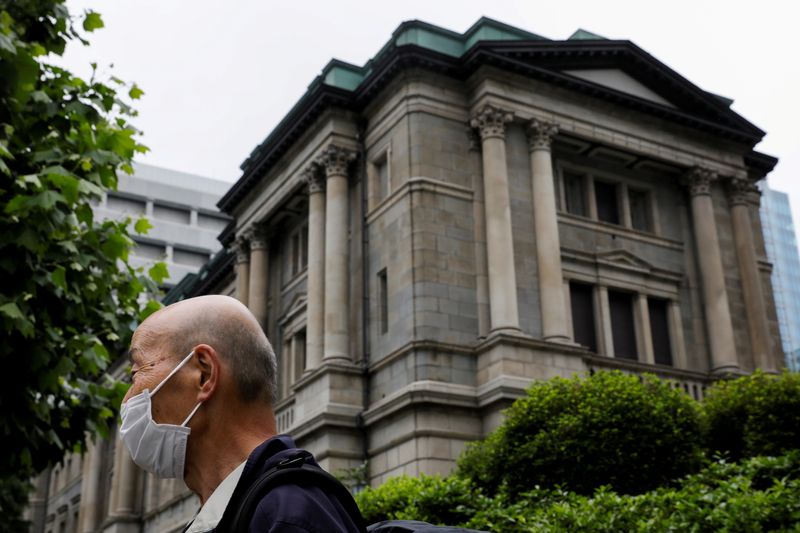By Leika Kihara
TOKYO (Reuters) - Japanese bank lending rose at its slowest annual pace in more than eight years in June as corporate fund demand to weather coronavirus-linked cash constraints subsided, central bank data showed on Thursday.
Total deposits parked at commercial banks continued to rise and hit a fresh record last month, the data showed, as companies and households held off on spending.
The figures underscore the view that many companies are emerging from the pandemic's immediate hit, but holding onto cash on uncertainty over the economic outlook.
"The balance of bank lending remains at elevated levels, but corporate fund demand seems to be subsiding," a Bank of Japan official told reporters at a briefing.
Total outstanding loans held by Japanese banks rose 1.4% in June from a year earlier to 578 trillion yen ($5.23 trillion), BOJ data showed, the slowest growth rate since January 2013.
Major banks saw lending fall 1.6% last month, posting the first year-on-year decline since November 2012, as some big borrowers paid back loans thanks to higher profits.
Total deposits held by banks stood at 834 trillion yen, hitting a fresh record.
Japan has not experienced the kind of explosive COVID-19 outbreaks seen in many other countries but has had more than 800,000 cases and 14,800 deaths.

Slow vaccine rollouts and a resurgence in infections are likely to force authorities to impose another state of emergency in Tokyo through Aug. 22, putting more pressure on a fragile economic recovery.
($1 = 110.5600 yen)